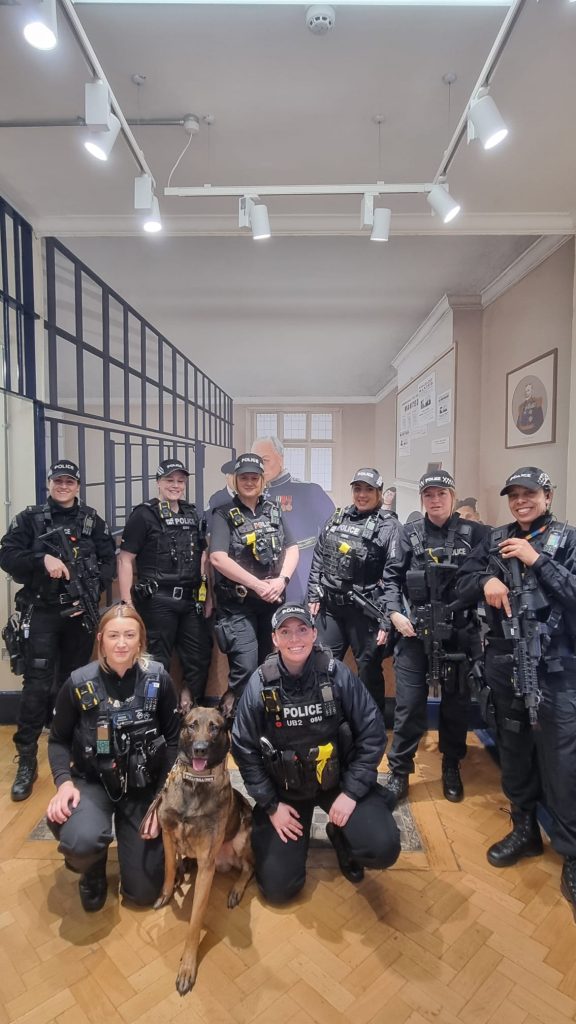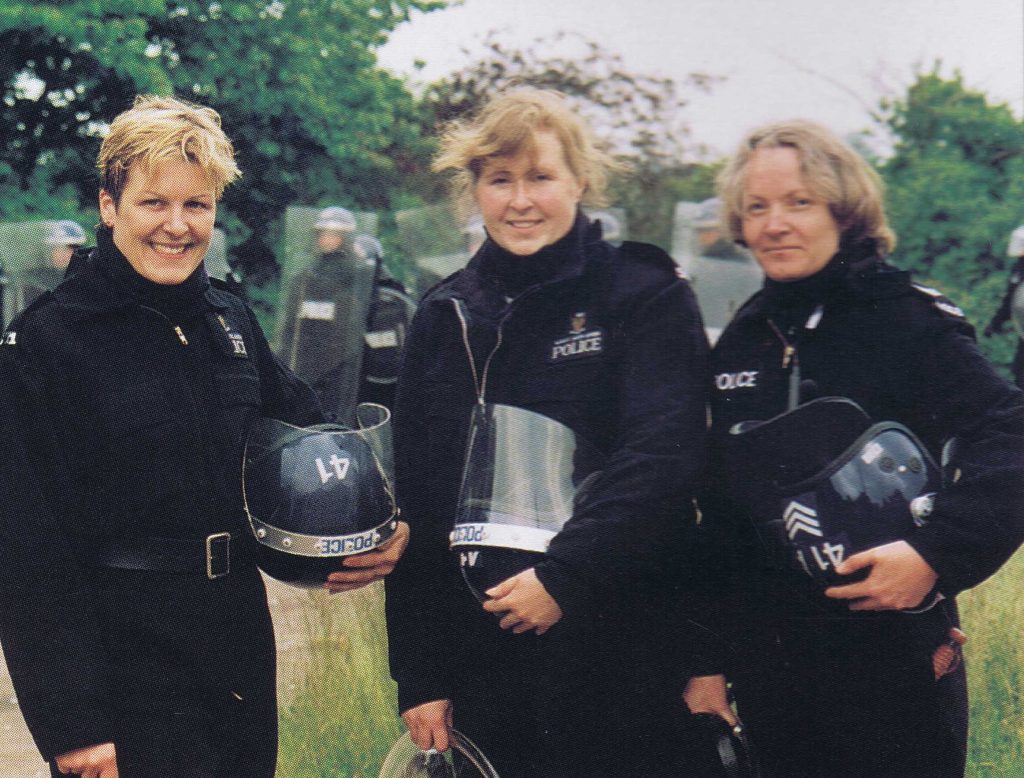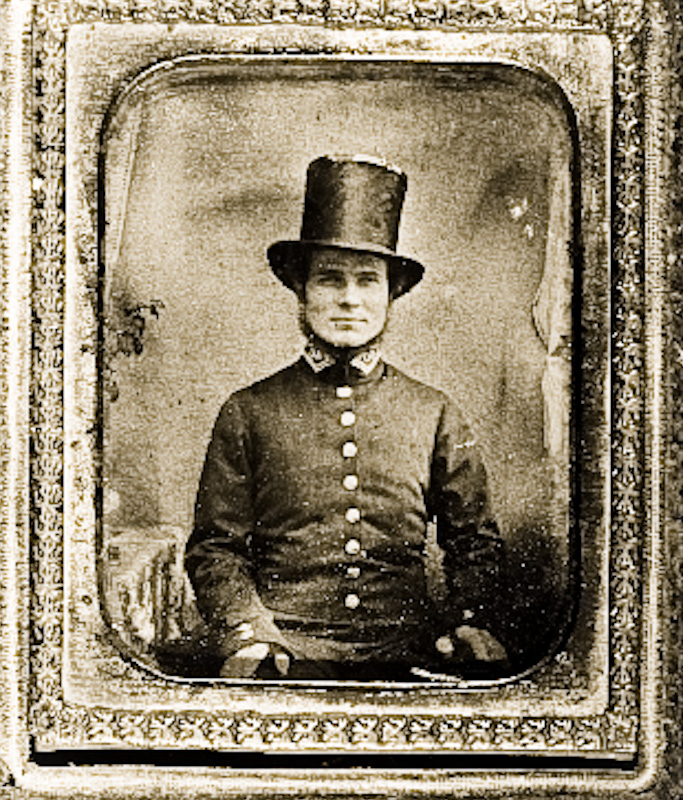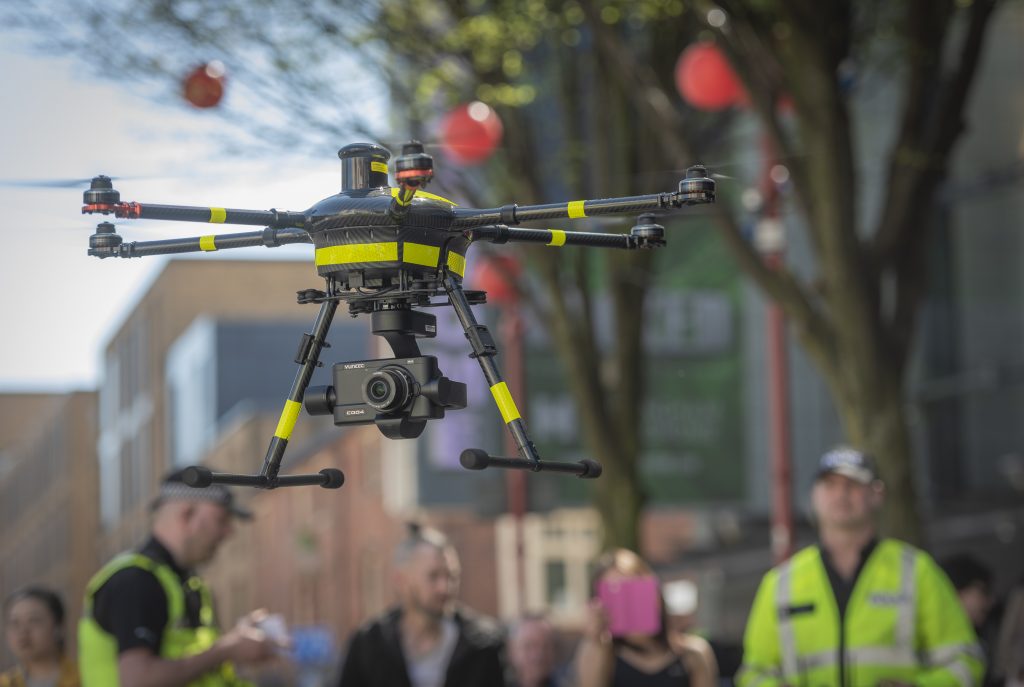Published on | #WeAre50, General
From Cappers Commandos to specialist, highly trained units
This year I’ve been fascinated to learn about the history of the various different teams that make up the West Midlands Police Operations Department.
This department is currently headed by Chief Superintendent Sarah Burton and includes teams such as Firearms, Operational Support Unit (OSU), Drones, Planning, Roads Policing, Football, Dogs, Safer Travel, Camera Enforcement and Cannabis Disposal.
We were lucky enough to feature officers from many of the different Operations teams at the museum during our successful International Women’s Day event back in March, talking to members of the public about their roles.

With so many potential teams to cover, I’ve chosen to focus on those whose history I’ve been able to discover this month: OSU, Firearms and Drones. Dogs will also be featured later in the year during our Animals month in August.
Operational Support Unit (OSU)
The Operational Support Unit carry out a number of roles such as specialist searching, public order at football matches and demonstrations and supporting other teams during spontaneous incidents.
But how old is the OSU? The earliest version of what we would now refer to as the OSU was known as Capper’s Commandos, after Birmingham (and later West Midlands) Chief Constable Derrick Capper.
They were regularly sent in to areas experiencing high levels of criminality or particular problems, often in plain clothes. One newspaper article referenced the fact that sometimes they were so convincing, several of the unit themselves would be arrested!
By the mid/late 1970s the Special Patrol Group (SPG) had been born. Officers would be attached to the SPG for up to two years before being sent back out on division.
Retired Inspector Josh Court describes his two stints on the SPG as the ‘BEST days of his career’. He remembers fondly the life-size dummy in police uniform, with a teddy bear head – known affectionately as Big Ted, that had to regularly be rescued during public order training, and from kidnap attempts of other serials. He even featured in the guard of honour at one officer’s wedding!
Retired DS James McManus remembers being told by his inspector that underwater search gear had been purchased, and when they went to find this after some evidence had been thrown in a canal – the inspector opened the cupboard to reveal two pairs of wellington boots!
Following the death of protestor Blair Peach in 1979 and the subsequent investigation into the Metropolitan Police’s Special Patrol Group, West Midlands Police unit changed it’s name to Operational Support Unit.
Women were not part of the OSU until 1990, when Kerry Delaney started in the unit and became the first female officer to complete public order training. She loved her time with the OSU and said the team ethos was one of the best things about the unit.

It was also very interesting to hear different perspectives on the miners’ strikes – normally when this features in the press there are pictures of lines of officers, often wrestling with striking miners. I found it fascinating to hear that the policewomen all remained in the West Midlands, running the stations on 12-hour shifts, whilst the vast majority of men were out on mutual aid, because of course women were not allowed to be public order trained.
It was also lovely to hear recollections of officers giving clothing and food to the miners’ families, seeing that they were struggling due to not getting paid during the strike. This is not something that the media tend to mention.
Firearms
There have been armed police officers ever since the very first police in the West Midlands in the 1830s.

Early Birmingham officers were sometimes armed with cutlasses and pistols, and when sent on mutual aid to neighbouring forces they were given strict instructions not to use their cutlasses except on the specific request of a magistrate. On 31 January 1840 PC William Capp was suspended for ‘causing a disturbance in a public house and improper use of a cutlass’!
Until the 1970s, officers could be trained in use of firearms, but would still carry out a regular policing role on division or at HQ and be called upon as and when needed.
Weapons were kept at many stations around the West Midlands and access was nowhere near as tightly controlled as today.
Shortly after the creation of West Midlands Police it was decided that a small, dedicated team of approximately 20 officers should be set up to undertake all of the proactive firearms work. This group was given the spectacular name of ‘Top Squad’ (I know right?) before it was decided to change it to the much less elite ‘Special Squad’.
In the late 1970s WPC Eileen Jones became the first female armed officer. There were very few firearms trained women initially, as many female officers struggled with the trigger on the revolvers, or the recoil on the shotgun. It was also very unusual for policewomen to feature in any specialist roles at this time.
During the 1980s the Firearms Operations Unit was created. This would ensure a sufficient number of specialist trained officers could be on constant rotation between armed duties and training, to improve the service delivered to the public. However, it wasn’t until much later that armed officers based on different divisions were removed altogether.
Drone Team
In 2016 a drone was trialled for the first time in supporting policing of a major local derby football match, at Aston Villa’s home match against Birmingham City. This led to one dedicated drone officer working within the Force Support Unit back in 2017 to further the work and demonstrate its viability. POCA funding supported the funding of more drones and vehicles, and the models were replaced with newer ones as the technology rapidly improved. Sergeant Keith Bennett was instrumental in developing the use of drones across the force, and pushing for new and innovative ways they could support frontline policing.

The first drone used in West Midlands Police is now on display at the Police Museum on Steelhouse Lane.
As part of a restructure of local policing in 2023 across the West Midlands Police, the force now has a dedicated drone team to fight crime. The team tweeted: “It’s official! – we have a drone team! After many years and milestones, today is a date to mark in WMP history.”
Last year, the team featured on their very own documentary Sky Coppers on Channel 4.
